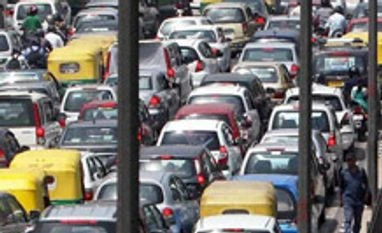Tagged as a superior and cleaner fuel than the BS-IV, currently is in use in the national capital region and 30 cities across the country, BS-V will not be launched commercially before 2017, say officials.
India is served by BS-IV fuel in cities such as Mumbai, Chennai, Delhi and BS-III fuel in the rest of the country. While EU had adopted Euro-V in 2009, the road map for a similar upgrade by India looks set to get delayed. Ambuj Sharma, additional secretary in the ministry of heavy industries and public enterprises, said: “By 2010, we almost caught up with Europe in fuel emissions with BS-IV. By 2014-end, we should have 40 cities supplied with BS-IV fuel; these will take care of 80 per cent of transport. We will have to invest a lot in BS-V.”
More From This Section
Oil companies have not been able to meet the target because of the heavy investment required for a technology upgrade. Oil firms invested Rs 30,000 crore between 2005 and 2010 towards upgrade for supplying BS-IV fuel. According to estimates by the ministry of petroleum and natural gas, oil companies will have to shell out Rs 80,000 crore more to move to BS-V.
Revised estimates show about 50 cities will be covered by BS-IV fuel by 2015 and the entire country will come under this type of fuel by 2017. Vehicle manufacturers have been pursuing the idea of 'One Nation One Fuel One Norm' with the government without much success.
India is the only developing country with the world with two different types of fuel officially in use. China is also expecting to switch to Euro V by 2017 and is presently using Euro IV type fuel.
Vehicle manufacturers have complained about lack of consistency in quality of the fuel available across the country. "Fuel adulteration is rampant. Kerosene is widely used, which impacts the EGR. This is making us to make hardware changes to our cars", said, Mahesh Kodumudi, president and MD Volkswagen India.
Like the introduction of BS IV fuel in 2010 raised the cost of vehicles, BS V fuel will also entail increase in cost of vehicles as they will also be upgraded to suit the new fuel. The increase is expected to be not more than 1.5%.
While the oil refining companies are struggling to meet the deadlines vehicle manufacturers, meanwhile are ready with the changeover even though the BS V fuel means is a huge jump in technology as the injection system in cars will be completely different .
In fact some manufacturers are already producing BS V cars in India to cater to the export markets of Europe, which switched over to the new fuel four years ago.
Hironori Kanayama, President & CEO Honda Cars India said, "We have the technology for part preparation. Manfacturers are ready for the switch to BS V However it cannot be done in one year as it will require redesign of parts."
)